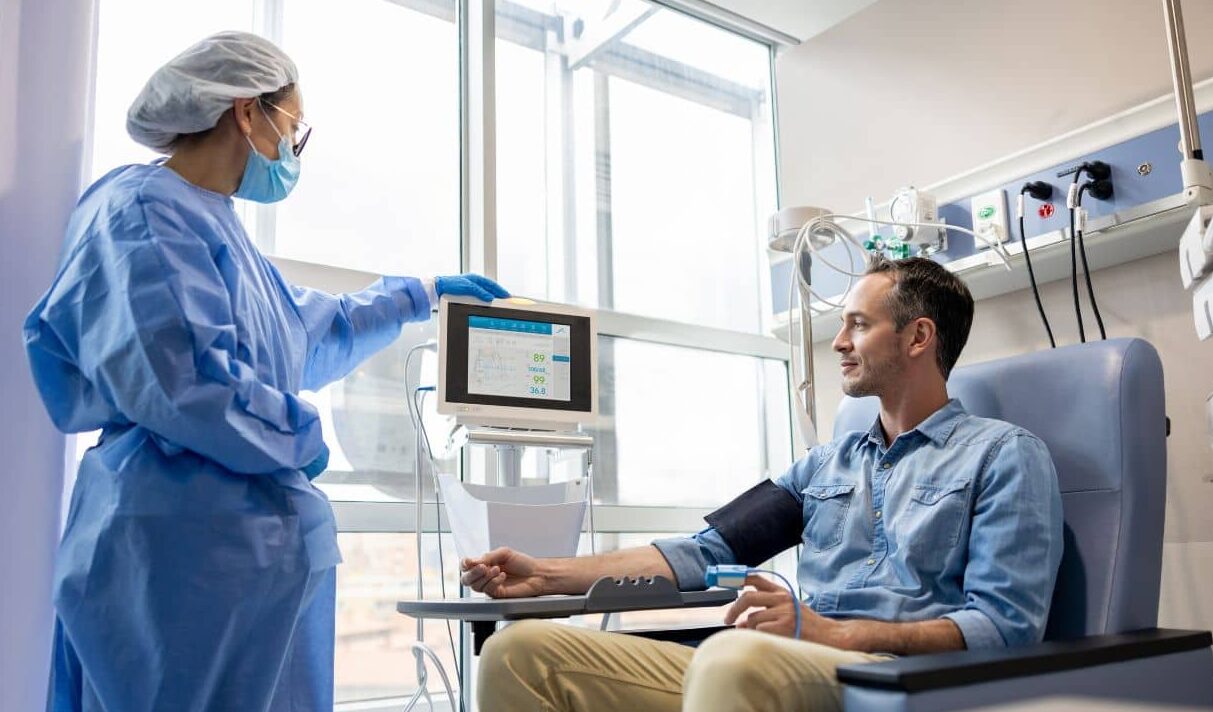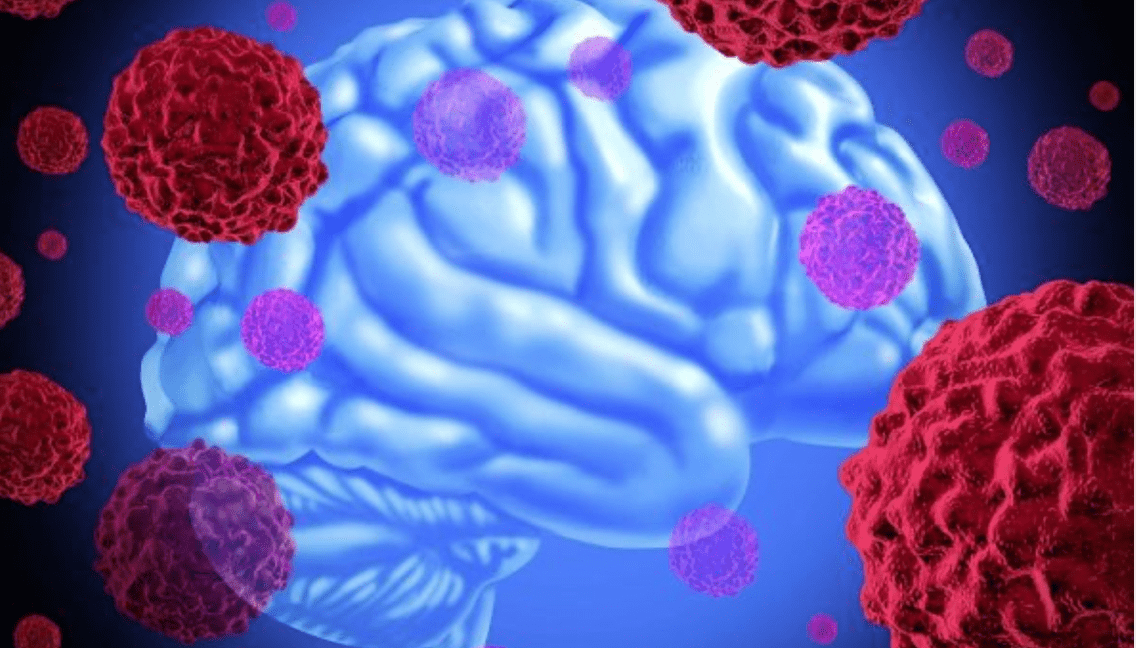-
 News
When glucose levels are low, chemotherapy ceases to affect cancer cells
News
When glucose levels are low, chemotherapy ceases to affect cancer cells
-
 News
Excessive treatment of prostate cancer in older men may reduce quality of life without increasing its duration
News
Excessive treatment of prostate cancer in older men may reduce quality of life without increasing its duration
-
 News
Brain cancer can be cured by viruses
News
Brain cancer can be cured by viruses
-
 News
Ways to reduce lymphatic pain in breast cancer have been found
News
Ways to reduce lymphatic pain in breast cancer have been found
-
 News
Scientists have turned bacteria into a powerful weapon against cancer
News
Scientists have turned bacteria into a powerful weapon against cancer
All news
Epilepsy treatment in Israel
In more than 80% of cases of epilepsy, Israeli doctors are able to completely prevent the occurrence of new attacks. Diagnosis and treatment of epilepsy in Israel is carried out in accordance with modern treatment protocols. In 2020, Israeli epileptologists participated in 38 clinical trials of new treatments for epilepsy.
A correct diagnosis allows the doctor to prescribe adequate antiepileptic therapy. In Israel, more than 30 different drugs for the treatment of epilepsy are approved for medical practice. This allows for an individual approach to the treatment of all forms of epilepsy, both in adults and children.
MedTour patients recommend clinics for the treatment of epileptic in Israel:
Frequently Asked Questions
Highly qualified specialists
Israeli specialists regularly improve their skills and exchange experience in American and European clinics, and also participate in the development of new methods for treating neurological diseases, including epilepsy.
Wide range of antiepileptic drugs
In contrast to domestic treatment protocols, in their practice, Israeli doctors use more than 30 different drugs to treat epilepsy. This makes it possible to approach each patient individually and select the most effective treatment.
Modern equipment
In Israeli medical centers, patients can undergo a complete diagnosis of epilepsy. Often, the patient needs to undergo an EEG and MRI examination. To clarify the diagnosis, doctors may additionally prescribe studies that are not available in the CIS countries. Israeli hospitals are equipped with MRI with FLAIR mode and a SPECT (single photon emission computed tomography) machine. Here you can undergo all the necessary tests in one medical center without queues and long waits for results. In the surgical treatment of epilepsy, stereotactic surgery with 3D modeling is used.
World class hospitals
All Israeli medical centers that accept foreign patients have international JCI accreditation. This confirms the high level of medical care provided to patients. The independent American news magazine Newsweek ranked the Sourasky Medical Center and the Sheba Medical Center in the top 100 best hospitals of 2020.
Professor Uri Kramer
The doctor conducts diagnostics and treatment at the Sourasky Medical Center in Tel Aviv, where he was the head of the pediatric neurological department for a long time. The professor has more than 50 years of experience in the treatment of childhood neurological diseases. The doctor’s main specialization is epileptology. The professor interned at the Boston Pediatric Clinic (USA).
Professor Miri Neufeld
Miri Neufeld heads the department of electrophysiology and epileptology at the Sourasky Medical Center (Tel Aviv). The doctor has more than 40 years of experience, and completed an internship at Mayo Clinic (USA). Professor Neufeld is a member of the American and Israeli Associations of Neurologists, and treats epilepsy in children and adults.
Professor Bruria Ben-Zeev
The doctor has been treating children with epilepsy and other neurological diseases for 20 years. Over the course of a year, more than 1,000 patients turn to the professor for rehabilitation, diagnosis and treatment of epilepsy. Bruria Ben-Zeev heads the department of pediatric neurology at the Sheba Medical Center. The doctor is a member of the World Neurological Federation, the American Neurological Association, and is the author of more than 150 scientific papers.
Professor Yizhak Shiller
Yizhak Shiller is Associate Director of the Department of Neurology and Director of the Epilepsy Service at the Rambam Medical Center. The doctor heads a laboratory for the study of epilepsy, researching new methods of treating complex types of epilepsy, such as neurostimulants and chemogenetic drugs. The professor is the author of scientific articles in prestigious medical publications, and completed an internship at the Mayo Clinic, Rochester (USA).
Treatment of epilepsy in Israel is carried out in accordance with international American and European treatment protocols. Types of treatment available here include:
Drug therapy
Prescription of antiepileptic drugs is the main method of treating epilepsy at the moment. Medications do not completely cure epilepsy, but they can help prevent the recurrence of attacks for a long time and reduce their intensity. Israeli doctors use more than 30 different medications in the treatment of epilepsy, and also take part in clinical studies of new treatment methods.
Surgery
If the focus of epileptic activity is isolated in the brain, doctors consider the option of surgical treatment of epilepsy. In Israeli hospitals, doctors hold a concilium, which consists of an epileptologist, a neurosurgeon, and an anesthesiologist. At the concilium, specialists decide on the appropriateness of surgical intervention. Epilepsy surgery involves removing the epileptic focus or cauterizing it using electrodes that are thinner than a human hair.
Israeli surgeons perform operations using stereotactic techniques and 3D brain reconstructions. This allows them to most accurately approach the epileptic focus without touching vital areas of the brain. Such operations are the most gentle and do not require long-term rehabilitation.
Installation of a vagus nerve stimulator or deep brain stimulation (DBS)
In some isolated cases, epilepsy is not amenable to drug treatment and cannot be cured with surgery, since the epileptic area is not actively localized in an isolated area. In such cases, doctors perform brain stimulation or implant a vagus nerve stimulator. These techniques are aimed at suppressing epileptic signals in the brain, in response to which the stimulator sends suppressive electrical impulses. In each case, the choice of treatment is decided individually.
Upon arrival in Israel, clinic representatives meet the patient at the airport, after which the patient travels to the clinic or checks into an apartment near the hospital.
On the first day, the patient undergoes a consultation with an epileptologist, during which the doctor collects a detailed history, conducts an examination and prescribes a diagnostic plan.
On the second and third days of stay in the clinic, the patient is given:
- EEG (Electroencephalogram) to detect epileptic activity and its localization.
- MRI, with the purpose of visualizing brain structures, possible lesions, tumors and malformations that can provoke epileptic attacks.
- Laboratory blood tests for electrolyte levels, metabolic disorders and other reasons that can provoke epilepsy attacks.
- Revision of a disc with a previously performed MRI if the examination was performed no more than 6 months ago.
In some cases, doctors may perform a CT scan or SPECT (single photon emission computed tomography) to clarify the diagnosis.
On the last day of the examination, the patient undergoes a final conversation with an epileptologist, who determines the final diagnosis and further treatment plan, and also gives recommendations regarding daily routine, nutrition and other modifying factors.
The cost of diagnosing epilepsy depends on the scope of diagnostic work. This is affected by:
- patient’s age,
- duration and frequency of epileptic seizures,
- presence of previous examinations,
- taking antiepileptic drugs.
On average, the cost of diagnostics ranges from $3,500 to $5,500.
The cost of drug treatment for epilepsy is determined by the number of drugs prescribed, as well as the country in which the drug was produced, whether it is original or generic. The price of one package ranges from $2 to $400.
Deep brain stimulation and installation of a vagus nerve stimulator in Israel costs from $42,000. Surgical removal of an epileptic focus – from $35,000. The final cost is determined by the level of accreditation of the clinic and the operating doctor’s fee.
The MedTour platform provides the opportunity to get a second medical opinion from leading Israeli epileptologists. This can also be done remotely. To do this, you need to send medical documentation – EEG, MRI, as well as data on the patient’s use of antiepileptic drugs to your coordinating doctor. Typically, a remote consultation can be completed within 3-5 days. The doctor will carefully study the provided documents, the MRI/EEG disk and give his recommendations regarding the further treatment plan.
You can get a free consultation from a coordinating doctor regarding the possibility of treatment in Israeli clinics. To do this, you need to fill out an application on the MedTour website, after which our specialist will contact you and answer all your questions. The coordinator will help you get an answer from an Israeli epileptologist and provide a preliminary estimate for diagnosis and possible treatment.
Patients can get an appointment with an Israeli specialist within 3-5 days from the date of submitting the application. MedTour helps patients in organizing transfers, air travel, and accompaniment in the clinic without additional commissions or financial costs.
Published:
Updated:






